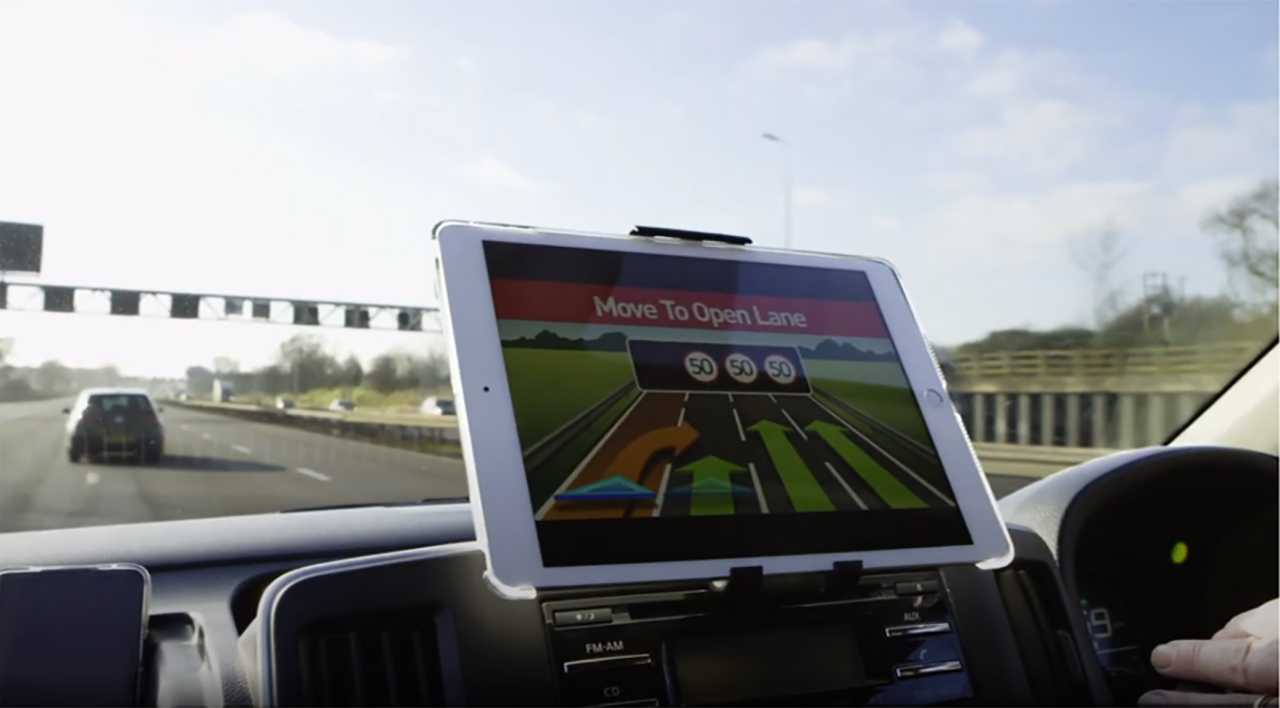Costain begins work on autonomous vehicle trial route

19 May 2020
Costain has begun installing smart infrastructure on the 300km Midlands Future Mobility test environment. Spanning from Coventry to Birmingham the route will be set to trial connected and autonomous vehicles with a view to making UK roads safer and allowing for more predictable goods delivery and journey times.
The autonomous vehicle industry is estimated to be worth up to £62bn to the UK economy by 2030 and Costain is a leading provider of advanced infrastructure technologies that are putting the UK at the forefront of the global mobility revolution. The project is run by a consortium of companies including Warwick Manufacturing Group (WMG), MIRA, Transport for West Midlands (TfWM), Costain, Amey, Wireless Infrastructure Group, Vodafone, Coventry University and Highways England.
The route has been developed by TfWM in collaboration with Coventry City Council, Birmingham City Council and Solihull Council and takes in key interchanges such as Birmingham International Airport and the new HS2 Hub in the City. It provides over 300km of inner city, suburban and rural roads on which to fully assess vehicle performance in a wide range of real world locations and situations.
The route itself causes no disruption to drivers or the homes along it, as it uses existing road infrastructure 95% of the time. Phase one of the route includes the University of Warwick, Coventry ring road, roads in Meriden, Solihull and central Birmingham around the Jewellery Quarter. Later this year the route will be extended to include rural and highway roads and span up to 350km.
The first types of vehicle to be trialled along the route will be “connected” vehicles. Connected vehicles can ‘talk’ to each other and warn of traffic, crashes and other hazards that other connected vehicles may have seen or be heading towards.
The vehicles on the Midlands Future Mobility route will not be driving themselves, just yet, initially they will have a driver and occasionally a second person monitoring how the vehicles are working. All testing will be as safe if not safer than current vehicles on the road.
The Costain technology team are practicing social distancing as they provide smart infrastructure solutions, including smart CCTV, a Human Machine Interface (HMI) for vehicles and video analytics.
John Batterbee, technology solutions director, said: “We’re excited about how our ambitious work together with our market leading partners in the Midlands is enabling safer, cleaner and faster journeys. Today is a key milestone in starting to deploy the advanced infrastructure technologies we’ve developed over the last couple of years. The cameras and video analytics we’re deploying will, for example, save lives by enabling drivers to be alerted to hazards beyond the line of sight.
“Our contribution to this project also delivers on our Climate Change Action Plan and our commitment to be a clean growth leader by enabling the uptake of low carbon solutions such as connected and autonomous mobility.”
Mayor of the West Midlands Andy Street, who leads TfWM, said: “Connected and autonomous vehicle technology has the potential to radically change our lives, and I am pleased the West Midlands is leading the way in this sector with research facilities and production plants already in place.
“I am determined our region will become a global leader in electric and autonomous vehicle technology, as I know we have the skills, facilities, and drive to compete with any other city or region in the world.
“Seeing our roads being used as a test bed for this new technology is both exciting and a step forward, and this vital research will help pave the way to bring key investment and jobs to the region as we look to bounce back from the COVID-19 crisis.”
In the future autonomous vehicles will be trialled on the route, however these will also be closely monitored by safety operators ready to take over immediately in the event of a problem. These autonomous vehicles will appear gradually as more and more advanced “Driver Assistance” systems are tested paving the way, such as lane centring and auto-speed limiting technology.
To find out more about Costain connected mobility solutions contact John Batterbee.
Read John’s article on decarbonising transportation through connectivity to learn more about how connectivity will help the UK meet its net zero carbon by 2050 target.
